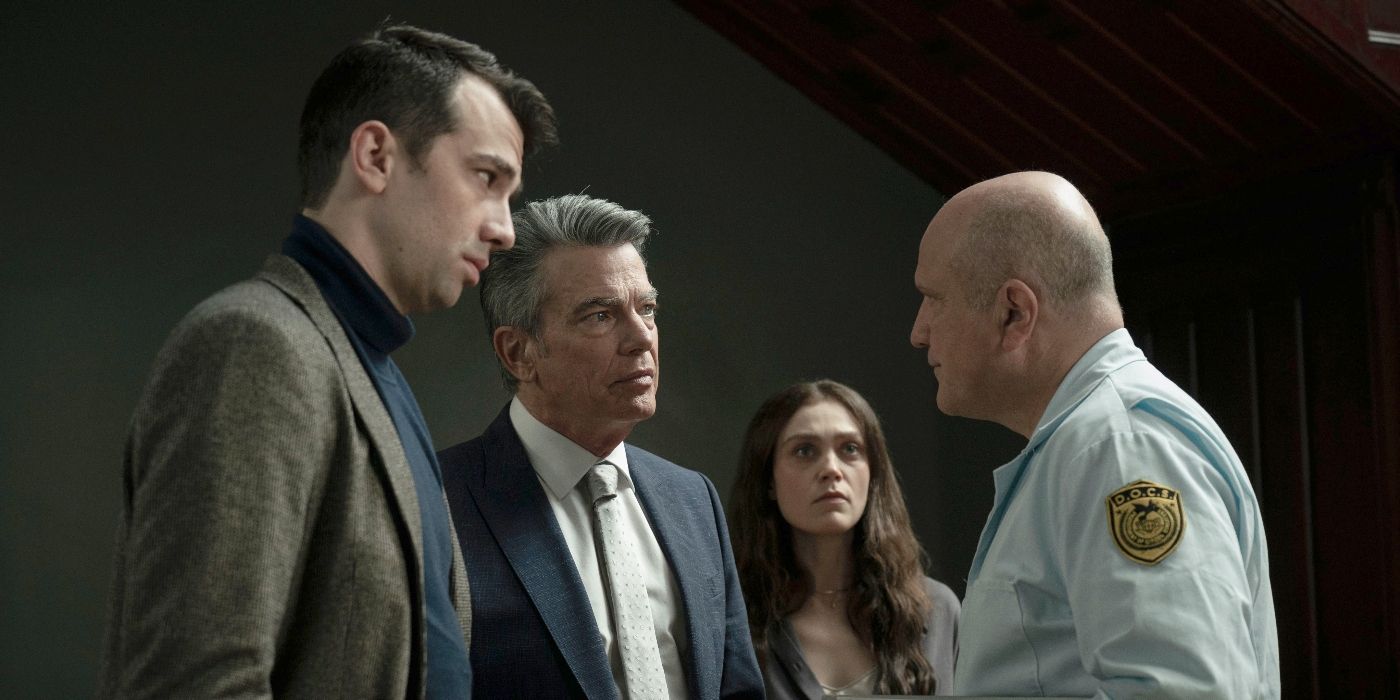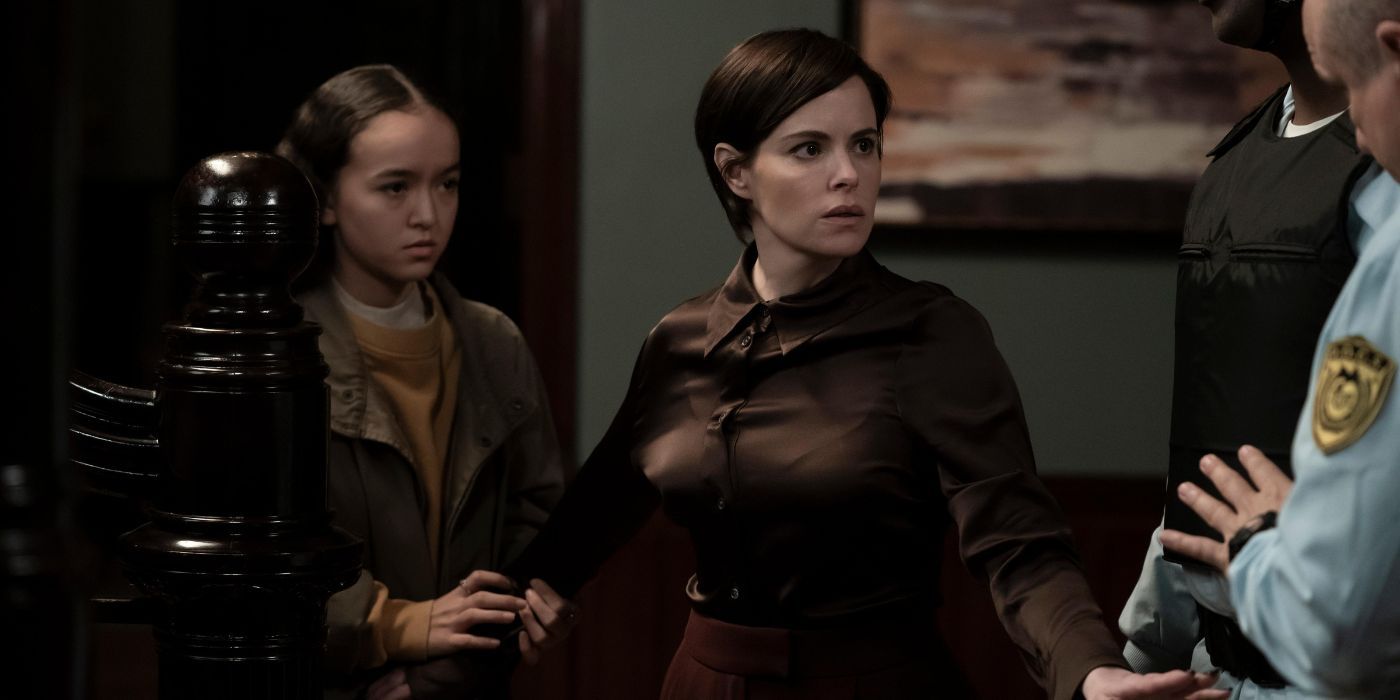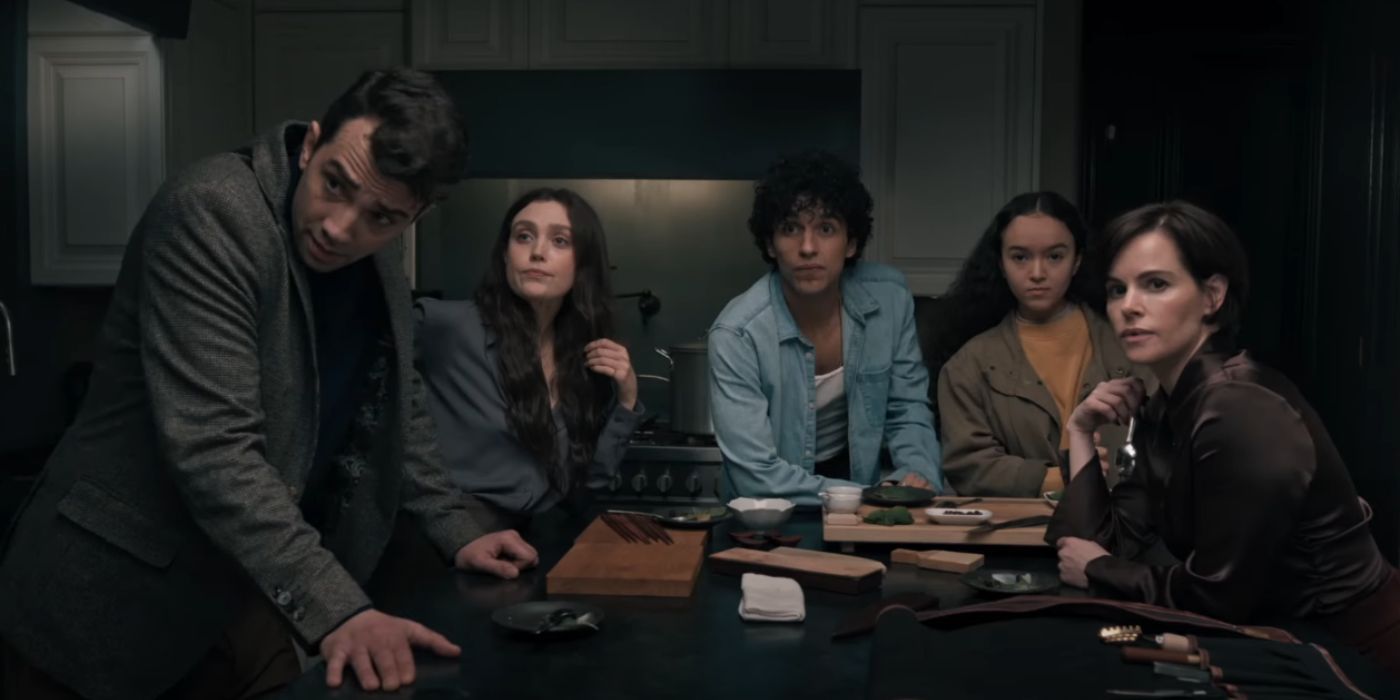It’s the end of the world as we know it, and I feel… nauseous.
The Big Picture
-
Humane
is a unique take on the eco-horror genre, examining wealth disparity and elitism in the face of ecological collapse. - The film boasts a strong cast, with an excellent performance by Enrico Colantoni in particular, and effective scenes of body horror.
-
Humane
attempts to tackle too many issues, but ultimately succeeds in its confrontation with privilege.
Movies about the devastating effects of ecological collapse have, for better or worse, become pretty commonplace in modern cinema since we learned that “Soylent Green is people!” back in the early ’70s. Stories of hardened souls trudging through dilapidated wastelands have been warning us about the potential impact of climate change for decades. Now, Caitlin Cronenberg’s Humane enters the conversation, forgoing the traditional disaster mold and offering a unique take on what the earliest days of our existence could look like once we’ve finally damaged our planet beyond repair. Throughout a wholly traumatizing dinner party, one family is forced to confront their demons — and personal biases — when they have to take part in society’s newest attempt to lessen the strain on the planet: sacrificing one of their own for voluntary euthanasia.
Boasting a strong, dark vision from Cronenberg, a wickedly funny script by Michael Sparaga, and strong performances from Jay Baruchel, Emily Hampshire, Enrico Colantoni, and more, Humane’s chilling concept occasionally gets lost in its message. Still, it remains a captivating addition to the eco-horror genre that examines how the elite may deal with the consequences of a broken system they’ve helped create — by stabbing each other in the face.
What Is Caitlin Cronenberg’s ‘Humane’ About?
Humane comes out of the gates swinging before the movie even starts, with some creative exposition as newscasters’ voices talk ominously under the opening credits. Professionals weigh in on the alarming lack of food, water, and resources attributed to catastrophic ecological decline, and that while this lack was once only an issue for the most vulnerable, now even the most wealthy will have to grapple with the effects (just you wait). Every country now has one year to meet their “population reduction goals,” which we soon learn translates to getting a large chunk of the population to “enlist” to be killed by the Department of Citizen Strategy (D.O.C.S).
With a delicious, Tarantino-esque needle drop, Humane officially begins, and Trooper’s “We’re Here for a Good Time (Not a Long Time)” sings out over a sun-soaked afternoon, which is soon marred as we see people cowering under foil-lined umbrellas and men in ski masks carrying dead bodies out of houses. Residents wave solemnly to their neighbors as if it’s just another Tuesday, and two piano movers sit dejectedly in a van on their way to a job.
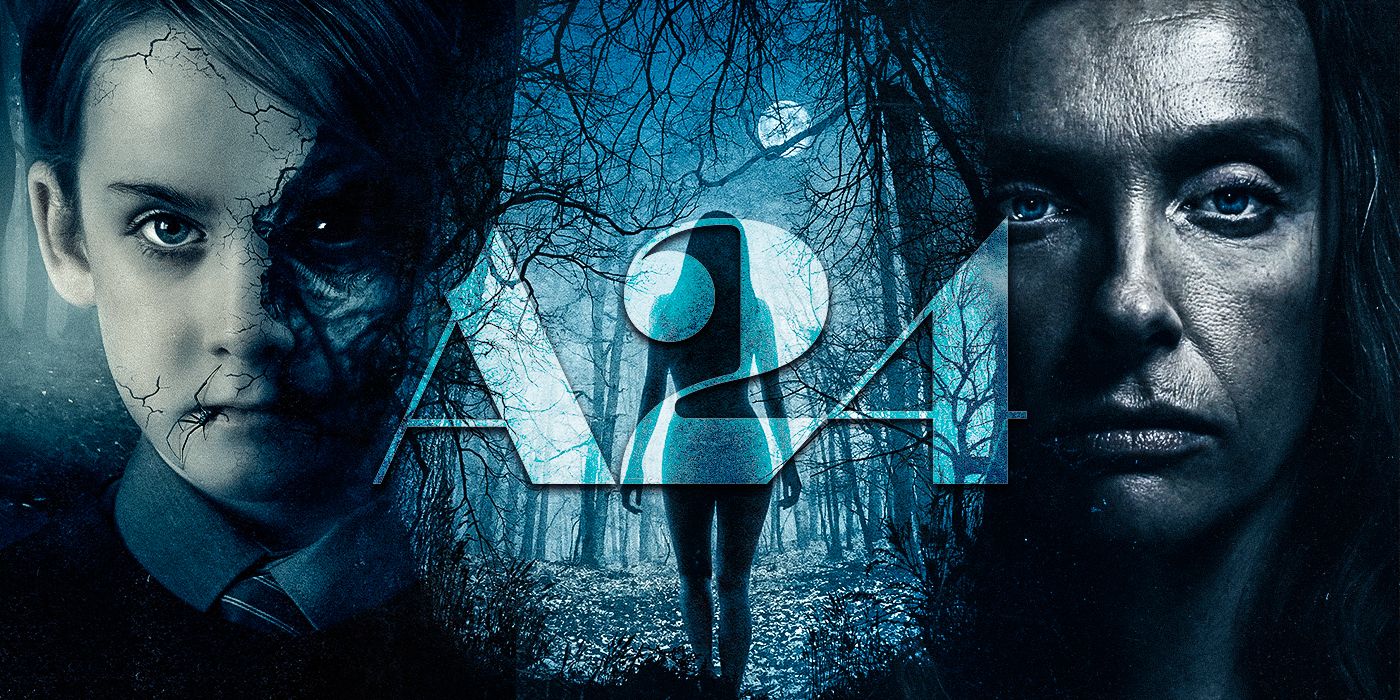
Every A24 Horror Movie Ranked From Worst to Best
How do all the A24 horror films stack up against each other?
Immediately, Humane gives a fresh take on the end times. Characters aren’t running from typhoons or looting their local grocery stores; they’re going to work and buying coffee on the way because, even as the world devolves into chaos, there are pianos that need to be moved, and lattes that need to be drunk — or thrown at propaganda posters politely asking the working class to kill themselves. By showing these flashes of normalcy, the movie only ratchets up its haunting atmosphere, because an existence like the one in Humane feels alarmingly feasible.
We then enter the mansion of the famous and wealthy York family, made up of father Charles (Peter Gallagher), his second wife, Dawn (Uni Park), and his four children, Jared (Baruchel), Rachel (Hampshire), Ashley (Alanna Bale), and Noah (Sebastian Chacon), the last of whom was adopted as a young child. When the family, along with Rachel’s young daughter, Mia (Sirena Gulamgaus), sits down for dinner, Charles reveals that he’s gathered his children to announce that he and their stepmother have decided to enlist, much to the kids’ understandable shock. However, before D.O.C.S can perform the euthanasia procedures on Charles and Dawn, Dawn takes off, and D.O.C.S agent Bob (Colantoni) reveals that he can’t leave without collecting two York bodies. If Jared, Rachel, Ashley, and Noah don’t decide which of themselves to sacrifice, Bob will decide for them.
Enrico Colantoni and Jay Baruchel Give ‘Humane’s Standout Performances
Right off the bat, Humane has great performances from its small ensemble cast. Save for Noah, the Yorks are pretty much all out of touch, greedy dirtbags. The actors playing them live up to their duties and have fun doing it. While Gallagher’s Charles has far less screentime than his costars, he’s expectedly excellent as a well-meaning father who’s soon revealed to be just as self-interested and cowardly as his children. The actors playing his kids are equally, if not more impressive, each fully embracing their characters’ entitled nastiness while portraying genuine, at times comical, ignorance, showing that they were kind of destined to turn out this way by the nature of their upbringing. Baruchel’s performance as the petulant, bumbling Jared is particularly strong, able to elicit both genuine laughs and exasperated eye rolls through his whiny delivery and physical comedy.
In fact, the cast of Humane does such a good job at crafting their characters that, after watching them squabble over their inheritance for a good while, you don’t really care who gets carted out in that body bag. Despite Noah being the most morally upstanding of the bunch, we don’t really get enough time to know him to become invested in his survival, so it’s best to instead enjoy the brutal fight sequences while not being particularly concerned with the outcome.
While Hampshire, Bale, and Chacon also impressively slash and scream their way through the movie, Humane’s real star comes in the form of Colantoni’s Bob, the lead D.O.C.S agent coming to collect his due. Bob brings the movie’s first real taste of comedy and an unexpected tonal shift, showing up to euthanize Charles and babbling on about where he should park his van. Colantoni shows an impressive range as he goes from a jolly Cadaver Fairy to a threatening one, determined to get what he came for one way or another. Sparaga’s knack for writing comedy is spotlighted largely through Bob. The quick cuts between scenes of the Yorks brutalizing each other and Bob playing cards with himself or making microwave popcorn as he tries to entertain Rachel’s daughter are some of the most surprisingly hilarious of the film.
‘Humane’ Attempts to Tackle Too Many Complex Issues
Humane’s biggest pitfall is its insistence on tackling so many complex issues. The film’s core message of privilege is clear and cutting, and the idea of offering a large sum of money in exchange for one’s life makes a scathing statement about wealth disparity, and what the rich are willing to do to stay comfortable even as the world burns around them. However, Humane, determined to pull no punches, also takes jabs at various, highly politicized human rights issues, from “kids in cages at the border,” to the downfall of society being referred to by Jared as “The Asian Collapse,” which is never explained but is presumably due to pollution levels, and is glaringly reminiscent of racism aimed at the Asian community during the COVID-19 pandemic. Perhaps most notably, near the end of the movie, Noah’s girlfriend, Grace (Blessing Adedijo), one of only two Black characters in the film, attempts to come to his rescue after receiving a cryptic text message. Upon her arrival, Grace is immediately held at gunpoint, filming the interaction with the D.O.C.S officer for transparency. When the Yorks yell at her to get help, Grace attempts to flee, but is shot in the back and killed by the officer.
While the disdainful stance is clear when touching on all of these topics, it’s impossible to do justice to so many complex issues by addressing them so briefly. Flitting past such complex topics as the detention of migrant children or police violence without giving them time to be unpacked (or in the case of Grace, quickly brushing off her death with a classic Bob one-liner), runs the risk of minimizing these issues rather than shedding vital light.
‘Humane’ Is at Its Best When It’s a Dark Comedy
Regarding its status as a horror-thriller, Humane is at its best when it leans into its comedy and its brutal body horror. Caitlin Cronenberg shares her father’s affinity and talent for grotesque, jaw-dropping gore as the Yorks bludgeon and stab each other, pulling out their own teeth and sticking their fingers into one another’s gaping wounds. In one particularly nausea-inducing moment, the siblings decide to band together once again and realize they have to cauterize a wound.
Nevertheless, while the general concept is horrifying and there are some scary shots achieved by Cronenberg’s artful eye (a bloody Noah approaching in the dark with a knife comes to mind), audiences coming exclusively for thrills and chills might be underwhelmed by the horror of the film. Humane sits in a bit of a genre limbo, successfully landing as a sort of bloody black comedy.
‘Humane’ Lands a Final Gut Punch With Its Finale
The last scene of Humane will likely leave you feeling unsatisfied, but that might be the whole point. Even in the wake of what they’ve lost, these characters have learned nothing, and will likely do nothing to change their ways. It almost leaves you wanting more. Is this the way the world ends? Not with a bang, but with… a subpar piano recital?
All in all, Humane is a captivating, occasionally skin-crawling endeavor. While it occasionally struggles in its efforts to tackle a wide range of issues, it ultimately succeeds as a thoughtful rumination on privilege. Through its dynamic direction, clever script, and stellar, largely Canadian cast, Humane has earned a place in the longstanding genre of ecological thrillers. It’s a fun, bloody reminder not only of how far people will go to save themselves, but to always bring pepper spray to an unexpected family dinner.
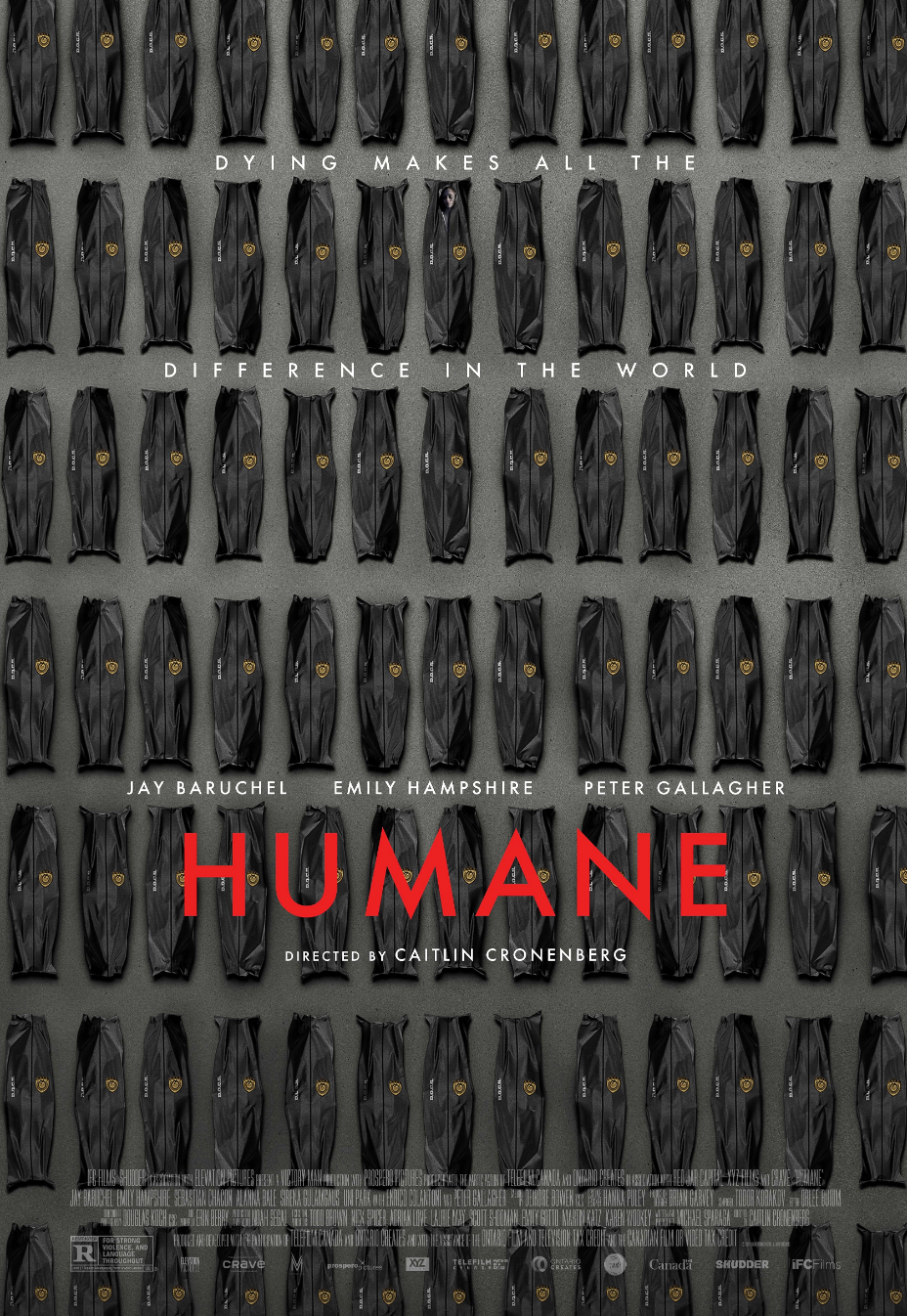
Humane
Humane is a fun, gnarly addition to both eco-horror and “Eat the Rich” satire that, while occasionally getting tangled up in its ambitions, is a bold feature directorial debut and a unique take on elitism in the face of societal collapse.
- Humane offers a truly unique take on ecological collapse.
- The film boasts strong humor delivered expertly by a strong ensemble cast.
- It brings plenty of effective, skin-crawling body horror.
- All of the intentionally unlikeable protagonists lower the stakes.
- Some of the film’s societal critiques fall flat.
- The film is not as scary of a “horror” as some movie-goers might expect.
Humane comes to theaters in the U.S. starting April 26. Click below for showtimes near you.
This article was originally published on collider.com



